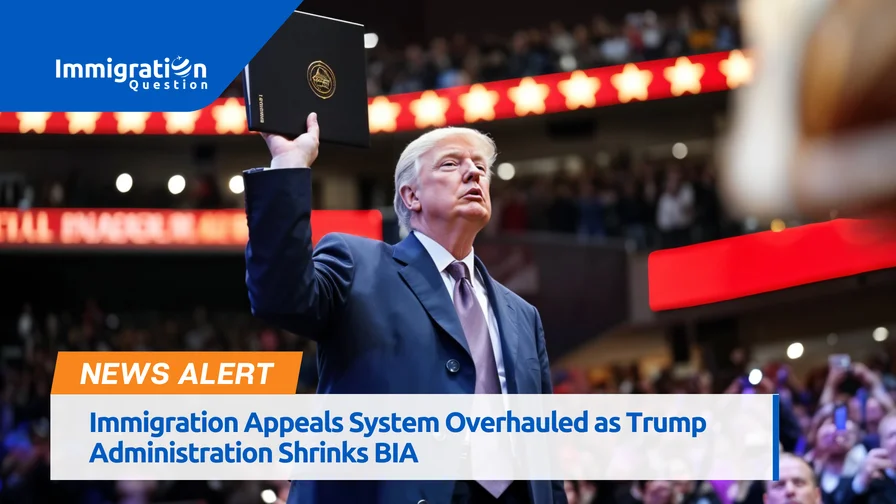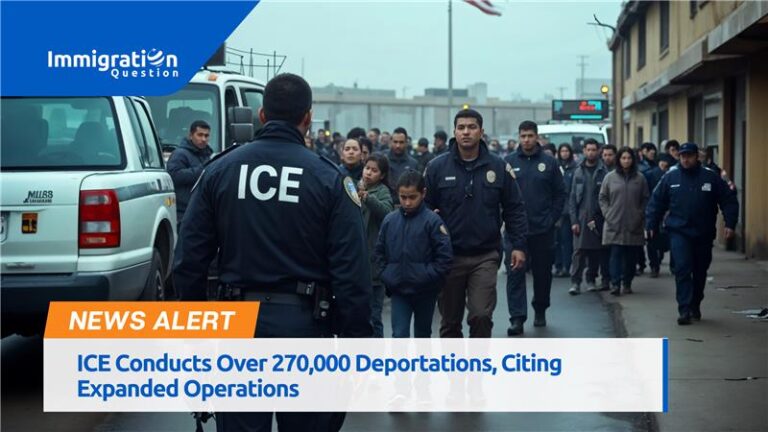The Trump administration has initiated a significant reduction in the size of the Board of Immigration Appeals (BIA). This is a significant move, reminiscent of past efforts to reshape the appellate body.
The Executive Office for Immigration Review (EOIR) announced the decision on Tuesday, downsizing the board from 28 to 15 members. This reduction directly affects nine members appointed under the Biden administration, who were notified of operational and budgetary constraints that necessitated the change.
However, within the immigration legal community, skepticism surrounds this explanation. Sources closely observing the immigration landscape suggest the decision is politically motivated, aiming to remove members perceived as less aligned with the administration’s restrictive immigration policies.
Echoes of Past Policy Moves
Observers have drawn parallels between this development and a similar move in 2002 under then-Attorney General John Ashcroft. At that time, the BIA was cut from 23 to 11 members, officially justified as an efficiency measure. However, former BIA Chairman Paul Schmidt, who served from 1995 to 2001, believes that the rationale of improving decision-making was merely a pretext to eliminate more immigrant-friendly board members appointed during the Clinton administration.
Schmidt, who was reassigned to an immigration judgeship following the restructuring, noted that large-scale removals from the board were historically uncommon. He warned that the latest reductions could once again erode the integrity of the board’s decisions, as it did in the early 2000s.
Potential Consequences and Concerns
Some analysts caution that the downsizing may result in greater inefficiencies rather than the intended improvements. When Ashcroft made similar cuts, a shortage of experienced board members led to an increased reliance on staff attorneys, resulting in a decline in the quality of legal determinations. The outcome was widespread dissatisfaction among circuit courts regarding the credibility of the board’s rulings.
Despite the administration’s lack of formal justification, many believe the current move could have unintended repercussions. With the immigration court backlog now exceeding 3.7 million cases, reducing the number of board members could hinder efforts to process cases effectively. Some argue that the decision contradicts Trump’s own immigration goals, as a less efficient appeals system may slow the removal of noncitizens rather than accelerate it.
Immigration Court Independence in Question
The restructuring of the BIA is part of a broader pattern of personnel changes within the EOIR. Since Trump’s inauguration, 15 immigration judges and 13 managers have been dismissed. This mass removal of legal officials has intensified calls for a more independent immigration court system.
Organizations like the American Immigration Lawyers Association (AILA) and the American Bar Association (ABA) have long advocated for an immigration court system independent of the executive branch. They argue that executive influence undermines judicial impartiality, making it difficult for the courts to function without political interference. Legal professionals believe a separate court structure – similar to the U.S. Tax Court – would better insulate immigration judges from shifting political pressures.
Looking Ahead: Immigration Appeals System Overhauled as Trump Administration Shrinks BIA
The Trump administration’s decision to shrink the BIA raises significant concerns about the future of immigration adjudication. With fewer board members, case processing delays could increase, leading to greater backlogs in an already strained system. Furthermore, the move may strengthen arguments for congressional intervention to establish an independent immigration court system, a demand that has been growing within legal circles for years.
As the administration continues reshaping immigration policies, legal experts and advocacy groups will be closely monitoring the effects of this decision. Whether this move ultimately streamlines the appeals process or creates new inefficiencies remains to be seen, but one thing is clear – the decision marks a pivotal moment in the ongoing debate over the role of politics in immigration law.
To stay updated and informed, watch our news section or drop your immigration queries on immigrationquestion.com and get responses from professional attorneys.










